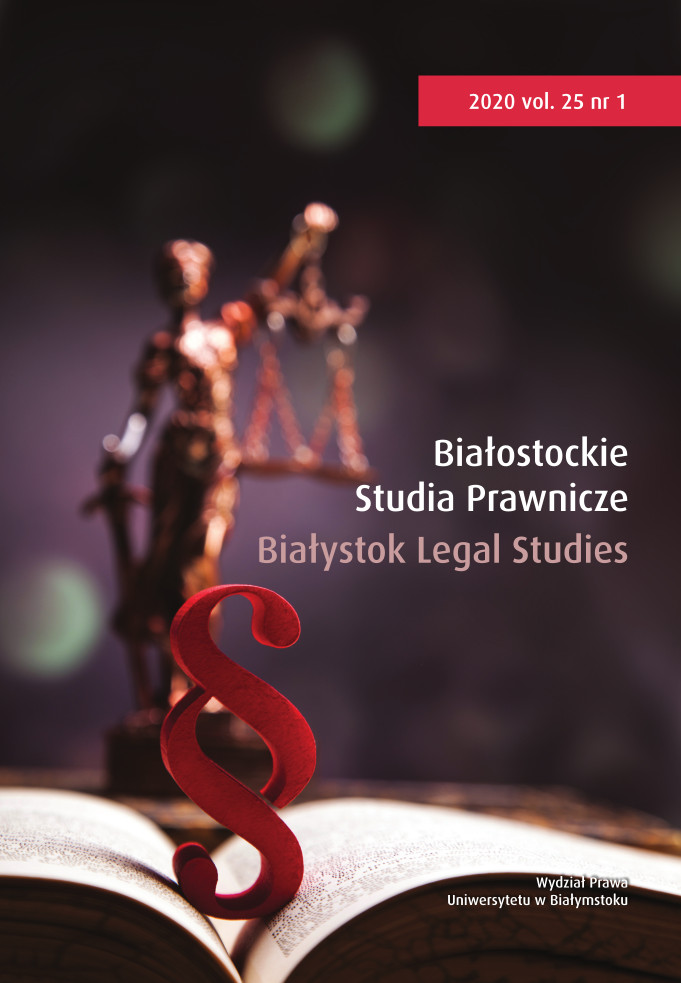Implementation of Article 251 of the Labour Code in Higher Education
Słowa kluczowe:
Council Directive 99/70/EC, the Labour Code, employment agreement for definite time, limitation of employment based on employment agreements for definite time, higher education, employees of universitiesAbstrakt
The Law on Higher Education and Science states that article 251 of the Labour Code which concerns the limitation of employment based on employment agreements for a definite time, on one hand, does not apply to first-time employed university teachers, to teachers for whom universities are not the main place of work nor teachers who are pensioners. On the other hand, the regulations of this article are still in effect with regard to the rest of university teachers and all other employees thereof. This solution cannot be positively evaluated due to its legislative inappropriateness in such aspects as excluding regulations concerning the limitation of employment based on employment agreements for a definite time and the results of exceeding those limits with simultaneous inclusion of regulations establishing exceptions to limits and employer’s obligations to implement them; and due to the legislation’s content such as inapplicability of article 251 of the Labour Code to the teachers for whom universities are not the main place of work and teachers who are pensioners, without adopting any type of mechanism excluding the excessive employment of these employee groups based on renewal of employment agreements for a definite time, as required by directive 99/70/EC. It is advisable to introduce changes in this field. It seems particularly worth noting that the proposal of enumerative determination in the Law on Higher Education and Science of cases in which university teachers could be employed under employment agreements for a definite time.Bibliografia
Bąba M., (w:) P. Chmielnicki (red.), Prawo o szkolnictwie wyższym. Komentarz, LEX/el. 2017, art. 136, pkt 3.
Bocheńska A., Unormowania szczególne wobec art. 251 KP a unijne standardy ochrony przed nadużywaniem umów o pracę na czas określony, „Monitor Prawa Pracy” 2019, nr 4.
Komunikat Ministerstwa Nauki i Szkolnictwa Wyższego z dnia 17 lutego 2016 r. w sprawie stosowania art. 251 Kodeksu pracy, https://www.gov.pl/web/nauka/komunikat-w-sprawie-stosowania-art-25-kodeksu-pracy.
Lekston M., Umowa o pracę jako podstawa nawiązania stosunku pracy z nauczycielem akademickim. Wnioski de lege lata i de lege ferenda, „Studia z zakresu Prawa Pracy i Polityki Społecznej” 2017, t. 24, nr 2.10.4467/25444654SPP.17.012.7399
Mędrala M., Terminowe zatrudnianie nauczycieli akademickich na stanowiskach adiunkta i asystenta, „Praca i Zabezpieczenie Społeczne” 2017, nr 9.
Napiórkowska A., Rutkowska B., Umowa o pracę na czas określony a ochronna funkcja prawa pracy, (w:) A. Napiórkowska, B. Rutkowska, M. Rylski (red.), Ochronna funkcja prawa pracy. Wyzwania współczesnego rynku pracy, Toruń 2018.
Piątkowski J., Kodeks pracy a ustawa – Prawo o szkolnictwie wyższym, (w:) W. Sanetra (red.), Zatrudnienie nauczycieli akademickich, Warszawa 2015.
Przewodnik po systemie szkolnictwa wyższego i nauki, Ministerstwo Nauki i Szkolnictwa Wyższego, Warszawa 2019,https://konstytucjadlanauki.gov.pl/content/uploads/2019/02/przewodnik-po-systemie-szkolnictwa-wyszego-i-nauki-cz-1-20190218.pdf.
Stelina J., Nowa koncepcja umowy o pracę na czas określony, „Państwo i Prawo” 2015, z. 11.
Świątkowski A., Klauzule derogacyjne w prawie o szkolnictwie wyższym a zakaz dyskryminacji ze względu na wiek, „Palestra” 2019, nr 4.
Zieliński J.M., (w:) H. Izdebski, J.M. Zieliński, Prawo o szkolnictwie wyższym i nauce. Komentarz, LEX, WK 2019, art. 117, pkt 4.



